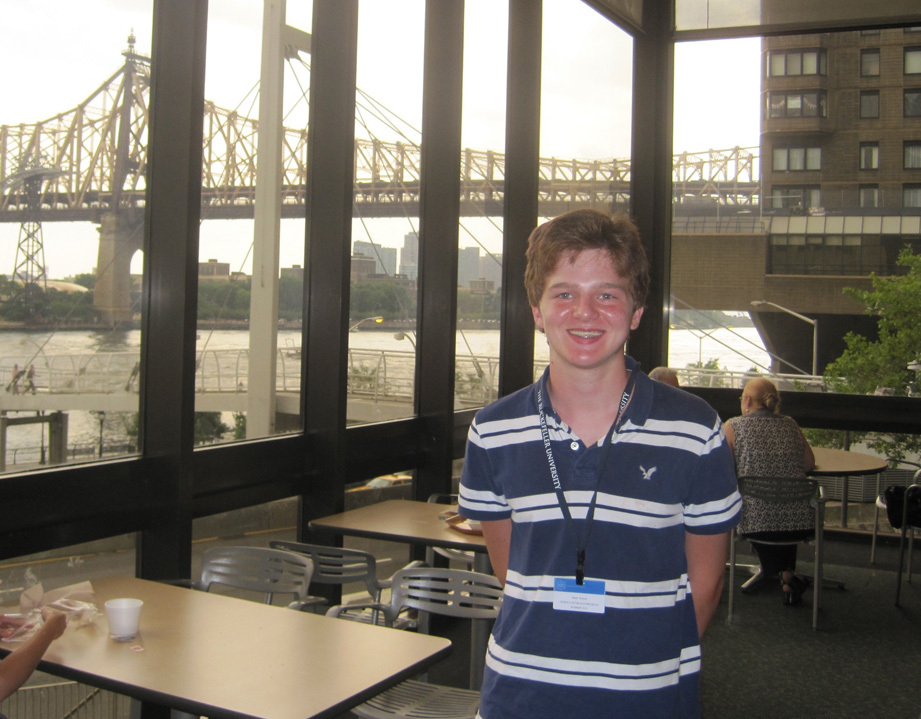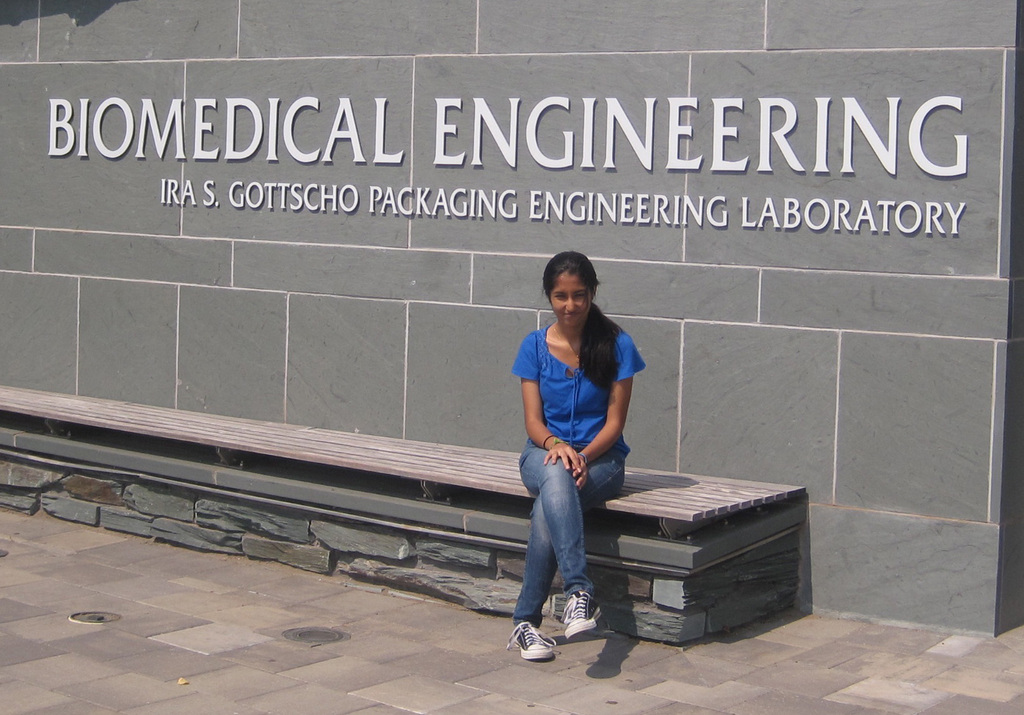The world is their laboratory
Lynbrook students do science research around the globe
Over the summer, rising Lynbrook High School seniors worked on science research projects in labs around the city and around the world.
Ankush Mohile experimented with developing a new anti-cancer drug that he derived from a plant in a lab in India. Jacob Kayen studied the ruins of Welsh castles for his project in medieval anthropology.
Closer to home, several students worked with their mentors in professional research labs around the city. Uptown at Rockefeller University, Danny Kramer worked on a new mathematical model for determining the circadian behaviors of high and low arousal mice. At Columbia University Medical School, Mariam Ayvazyan did research on diagnosing bipolar disorder in pre-adolescents. Jared Khan studied the effects of Vitamin D on health and disease at Einstein Medical College in the Bronx. At the New York Eye and Ear Infirmary, Marial Messilaty assessed the effectiveness of treatment for macular degeneration. At Rutgers University’s biomedical engineering lab, Ayman Khan determined the medical effect of honey on wound healing in both in vivo and in vitro studies. Bryan Sitt identified gene sequences on a section of the fourth chromosome of a fruit fly at York College. Matt Gus worked at Polytechnic University in Farmingdale on a project to increase the efficiency of fuel cells. Back at the high school science lab, Gideon Stryker developed an invention that converts heat energy to sound energy to electricity. Several students have already been invited to work with their mentors next summer as paid research assistants.
Under the guidance of research teacher David Shanker, all of these students spent their junior year developing background information, reviewing literature, reading professional journal articles and contacting potential mentors to develop their summer internships. Many will continue their research during the school year and prepare to enter the Intel Science Talent Search and other competitions.
“Competing in the Intel is not the only reason that these students have sacrificed time at the beach,” Shanker said. “Learning how to do research on a professional level and making connections for the future are important too. Some of our past students have published with their mentors and many have gone on to earn MDs, PhDs, and to pursue research careers.”









